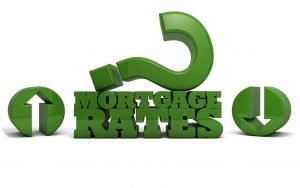 If you’ve been waiting for a sale to officially close, chances are that you’ve thought about whether or not commission advances were the right move for you and your business. With all of the information out there, it can be difficult to separate myth from fact and make the most informed decision to keep your business moving forward. Here are a few pieces of advice that you can safely toss aside.
If you’ve been waiting for a sale to officially close, chances are that you’ve thought about whether or not commission advances were the right move for you and your business. With all of the information out there, it can be difficult to separate myth from fact and make the most informed decision to keep your business moving forward. Here are a few pieces of advice that you can safely toss aside.
Best Mortgage In America

Mortgage Today
Applying for a mortgage can be a tough task for aspiring homeowners. Especially so for borrowers with low to moderate incomes or perhaps less than stellar credit. While the availability of credit in the early-mid 2000s made it possible to get a mortgage, this was irresponsible. These types of mortgages would typically include a teaser rate, eventually leading to payment shock.
These days, NACA seeks to avoid that mess. In addition to a wide depth of resources available to homebuyers to ensure they get the best possible deal, NACA also provides what has been dubbed the “Best Mortgage In America”. This means that qualified borrowers will be able to take advantage of the following mortgage perks NACA has to offer:
- No down payment
- No closing costs
- Below market interest rates
- No Points
- Buy-downs to near-zero interest rates
- No fees
Seem too good to be true? For once, it isn’t! What’s more, NACA is not a program only available to people with certain income or credit scenarios, it is available to all qualified borrowers who do not currently own a home! Even if the desired property requires more renovation than the buyer can afford, NACA will finance that renovation as well to allow the buyer to purchase their dream home, even if it is a fixer-upper.
This underutilized and underpublicized product is a great tool in the tool belt of first time homebuyers and realtors alike who are striving to get the best deal.
You can read more about the different programs available at www.NACA.com.
About Us:
Express Cash Flow – Commission advances for real estate agents and brokers www.ExpressCashFlow.com.
How to Win a Bidding War
 Real estate agents know better than anyone how critical it is to win in a competitive marketplace. Some buyers will want to avoid a bidding war altogether, but for those that want to engage, here are some tips on how to come away successful.
Real estate agents know better than anyone how critical it is to win in a competitive marketplace. Some buyers will want to avoid a bidding war altogether, but for those that want to engage, here are some tips on how to come away successful.
When to Lock a Mortgage Rate
 Real estate agents are often asked to advise homebuyers on financial matters especially on mortgage rates and when to lock them in. These can be difficult conversations, because things like whether to lock or float an interest rate can be guess work. A mortgage rate lock simply guarantees a specific interest rate if a loan closes by a particular date. Rates can often be locked for up to two months. At Express Cash Flow, we work with agents to keep their cash flowing with commission advances, and we’ve picked up a few tips for homebuyers who are deciding when to lock in an interest rate.
Real estate agents are often asked to advise homebuyers on financial matters especially on mortgage rates and when to lock them in. These can be difficult conversations, because things like whether to lock or float an interest rate can be guess work. A mortgage rate lock simply guarantees a specific interest rate if a loan closes by a particular date. Rates can often be locked for up to two months. At Express Cash Flow, we work with agents to keep their cash flowing with commission advances, and we’ve picked up a few tips for homebuyers who are deciding when to lock in an interest rate.
Home Seller Factors

Working as a home seller can be a frustrating experience, given how long it can take for a sale to close before finally being able to take the commission you’ve earned for your work. But by preparing yourself for several different possibilities, you can lessen the frustration by being aware of what issues might pop up over the course of getting to the sale. Here are a few Home Seller Factors that might come up in the process.
Commission Advance Cost?

How much does a commission advance cost?
This is usually the first and most important question to real estate brokers and agents who inquire about commission advances. This is a very reasonable question, but not a simple one.
While other companies have flat fee or fixed pricing based on the amount requested for an advance, Express Cash Flow don’t operate that way. This is almost always to the benefit of the agent requesting the advance. A one-size fits all approach doesn’t take into account the different variables of a real estate transaction. It also doesn’t factor in experienced agents and inexperienced agents. If no two transactions and no two agents are exactly alike, then it makes sense that those transactions have different risks. If they have different risks, then it would only make sense that those different risks resulted in different pricing. So, what are the different risks, and how do they affect the commission advance cost?
Transaction Risk
No matter how solid a real estate deal seems, there is always the chance that it could fall apart. Sometimes a buyer is unable to qualify for financing, or has a cash emergency. While this is rare and unfortunate, it does happen. There are a number of hurdles to each transaction, and any of them can be its undoing. As such, an advance requested early in the lifespan of the transaction will always be more expensive.
Agent Risk
While there will always be risks associated with a transaction, we also measure your production history as a real estate agent or broker and the risk associated with a replacement transaction should your transaction fall apart. The more history of closed transactions you have, the lower our risk, and the lower your pricing will be.
Delay Risk
It is also entirely possible that there will be delays. Because of this, we have to have protection from these delays since close of escrow date determines pricing. So, the only fees you will ever see besides our initial quoted fee is if your property does not close escrow on time. Note, however, that the close of escrow date we agree on does not have to be the same as the close of escrow date on the purchase agreement. In order to avoid these fees, you can project a close of escrow date after the scheduled close of escrow, which is a savvy, cost saving move.
Conclusion
There is only one right answer to our most frequent question “How much does a Commission Advance Cost?” That is, we don’t know yet, but would be happy to look at your scenario individually. If you’re able to provide us all of the details, we should be able to give you a ballpark price. The good news is, unlike some of our competitors, we give you the full amount you ask for and are paid back only at close of escrow, so our interests are aligned with yours throughout the transaction.
About Us:
Express Cash Flow provides commission advances for real estate agents and brokers. Check us out at www.ExpressCashFlow.com or call us at 844-818-2274.
Real Estate Negotiation
Much is often made of being the best salesperson, or persuading the other party in a negotiation to conform to your every desire. However, not all negotiations are a zero sum game, requiring one party to lose exactly as much as the other party wins. In real estate negotiation, this is in fact very rarely the case. It is very uncommon for a lopsided negotiation the result of one intelligent and informed party persuading another intelligent and informed party to do something against their will. Much more common is the scenario in which a solution is created to solve a problem, and both parties come out ahead. That’s what we’ll be focusing on here.
There are 3 basic principles to adhere to when entering a real estate negotiation:
1: Know the problem
2: Ensure the other party commits to a structure first
3: Keep the negotiation alive
Know the Problem
All transactions take place because two parties wanted to change their status quo. Unlike financial markets though, the motivations for real estate transactions are not always as transparent. Buying at the lowest point and selling at the highest are not always the primary concern for transaction participants, there may be other things in play, such as the desire to live in a specific neighborhood or style of home. On the other side, the desire to sell a home may be driven by needing to pay off other expenses, increasing motivation beyond the desire to achieve the highest price. If this is the case, the driving factor in the negotiation is not price at all; it is a bill that needs to be paid. Finding out exactly how much that bill is, in a nice way, can go a long way towards getting the best result on the buyer side (the lowest price). Conversely, there might be a tax issue caused that either requires the buyer to close very quickly or the seller to prefer to take a deferred payment (carry back), having this flexibility as a buyer will allow the lowest possible price.
First Mover Disadvantage
There are, unsurprisingly, many schools of thought on negotiation. While it is true that as a seller, you have a list price which theoretically anchors the real estate negotiation, it is also the case that both buyer and seller can force the other party to commit to a structure first, and that there is an advantage in doing so. As a seller, this is easy. Simply let the buyer make an offer, and if you are not comfortable with the structure, require (via a counter offer) that the buyer restructure their offer on more suitable terms. Notice, that while price is one of the issues to figure out in a negotiation, it certainly isn’t the only one. Many times too much of a focus on price will adversely affect other terms, such as who pays for services such as escrow, title, or repairs. As a buyer, it is trickier to make the seller commit first, but can be done. The approach that works best is to come up with an offer that is low enough that the seller must counter, but not so low that the seller is offended and ignores it completely. Striking this balance can be challenging, but the rewards make it very much worth trying for.

Keep the Real Esate Negotiation Going
This seems like a simple point, but it can often be difficult to remember during a contentious negotiation. No matter how badly you want something, and no matter how far apart you are from the other party, you are always closer to putting a deal together if talks remain open. It can be very tempting to respond with an emotional counter offer (taking only a nominal amount off the listing price, writing in all caps, etc), but anything that is done to antagonize the other party will usually come back in the form of a lost negotiation. So, whether you take the time to thoroughly respond to an offer you might think is frivolous, or call for clarification when there starts to be a disconnect as opposed to shutting of lines of communication, it can only help. This is one instance where a real estate negotiation is not a zero sum game, and everyone benefits if the negotiation continues.
About Us:
Express Cash Flow provides commission advances for real estate agents and brokers. Check us out at www.ExpressCashFlow.com or call us at 844-818-2274.
How to Appeal to the Millennial Homebuyer
In a world where millennials are more likely to walk into your home in search of Pokémon than to check out your kitchen remodel, home sellers may want to take a step back and assess how appealing their home is in its current state to the next generation of homebuyers. Often ignored as a generation that prefers renting, that trend has reversed course, as millennials have been the largest sub-group of homebuyers in 2013, 2014, and 2015 according to the National Association of Realtors.
Once home sellers are paying attention though, it is important to take note of the nuanced preferences of millennial homebuyers. While it may seem obvious that the home needs to be “hip”, there are a number of things sellers can both do and avoid to accomplish that goal. Here are some “Do’s and ‘Don’ts” of selling to millennials:

Do:
• Focus on the home’s sleekness by adding modern light fixtures and window coverings.
• Use newer flooring materials like hardwood, vinyl or patterned tile
• Stick to light colored walls with darker floors for a glamorous look
• Use high tech “smart home” features to enhance the home’s “future value”
• Stage the home with sleek furniture to give it a finished, move-in ready look
Don’t:
• Have family portraits or old-looking art cluttering up your home during showings
• Utilize old fashioned décor such as wallpaper, rocking or recliner style chairs, antiques or quilts
• Allow deferred maintenance that might appeal to the bargain hunter but not the millennial
• Too many mirrors or full length mirrors
Following these tips can get the newest (and largest) demographic of homebuyers to look more closely at your home, but you’ll still need to stay top of mind throughout the negotiation process in order to successfully open (and close) an escrow. The last thing millennials will want is to have to wait more hours or days than necessary to get a response, so you’ll want to coordinate with your real estate agent efficiently. This means that the days of waiting until all parties can physically be in the same location are over. With email, text, file sharing and cell phones, it should be fairly easy to take the next step in a negotiation within 24-48 hours, and millennials expect this. Make sure you find a realtor who can meet these demands and is familiar with negotiating in a high tech world.
From there, you’ll also want an escrow company that is as efficient as the millennials expect them to be, to minimize their frustration during the escrow. Of course, there will always need to be some documents that need to be signed in person, such as loan documents or other things that need to be notarized, but many escrow companies will allow electronic signatures, or at least provide a courier or shipping label, so busy millennials don’t have to take time out of their day to go sign documents at the escrow office.
Now that you know how to appeal most to a millennial, go out and apply your knowledge to get top dollar for your home!
About Us:
Express Cash Flow provides commission advances for real estate agents and brokers. Check us out at www.ExpressCashFlow.com or call us at 844-818-2274.
Should You Get A Second Appraisal?
Another Appraisal?
It’s a nightmare scenario. After brokering an excellent deal and receiving an offer right at or slightly above purchase price, the home sellers, buyers, and agents are simply waiting for the final details to fall into place, when the unthinkable occurs: an appraisal below purchase price.
Nothing can kill a real estate deal faster than an appraisal falling short of the agreed-upon purchase price because buyers can’t get a loan for more than an appraisal says the house is worth. The National Association of Realtors reports that about 10 percent of canceled sale contracts are due to low appraisals.
So what’s a real estate agent to do when this situation occurs? First, these are times when commission advance can help agents maintain cash flow to their real estate businesses while sellers, buyers and agents attempt to salvage the deal.
What Now?
So, should you seek a second appraisal? Here are a few things to consider.
It’s important to remember that an appraisal is simply the opinion of one appraiser. This means two different appraisers can conclude two different values for the same home. As a real estate agent, you have certain tools at your disposal to determine whether an appraiser’s opinion is accurate.
Most lenders have a process for challenging an appraisal, so savvy agents often start by pulling comparable properties that have recently sold and making a case to the buyer’s potential mortgage lender. Appraisers typically pull comparable sales information from multiple listing services, so if sales occurred outside of the listing service, point those out. Also, check if the comparables used by the appraiser were short sales or foreclosures. Short sales and homes in foreclosure usually sell for less than homes sold by owners in good financial standing with their lenders.
 Find out the lender’s appraisal challenge process. Appraisals cost the buyer or the lender, so be prepared to give specifics about what the appraiser missed in valuing the property. In addition to providing comparable property sales, be prepared to show improvements to the home that an appraiser may have overlooked. If the appraisal shows two bathrooms when there are actually three, ensure that the lender or appraiser on a second pass knows the correct number of bathrooms and bedrooms and the correct square footage of the home.
Find out the lender’s appraisal challenge process. Appraisals cost the buyer or the lender, so be prepared to give specifics about what the appraiser missed in valuing the property. In addition to providing comparable property sales, be prepared to show improvements to the home that an appraiser may have overlooked. If the appraisal shows two bathrooms when there are actually three, ensure that the lender or appraiser on a second pass knows the correct number of bathrooms and bedrooms and the correct square footage of the home.
Many times, these contracts that fall apart due to low appraisals can be salvaged, but it takes research and effort to get the job done. An express commission advance can keep the bills paid until a delayed deal closes.
How to Prevent Property Tax Pile-ups
 If you have large or even out of control property taxes, there are a lot of options available to you, like looking into commission advance companies. They can help you get a little extra cash when you need it. In the meantime, here are a few of our top tips to help you keep your property taxes down in the first place.
If you have large or even out of control property taxes, there are a lot of options available to you, like looking into commission advance companies. They can help you get a little extra cash when you need it. In the meantime, here are a few of our top tips to help you keep your property taxes down in the first place.


